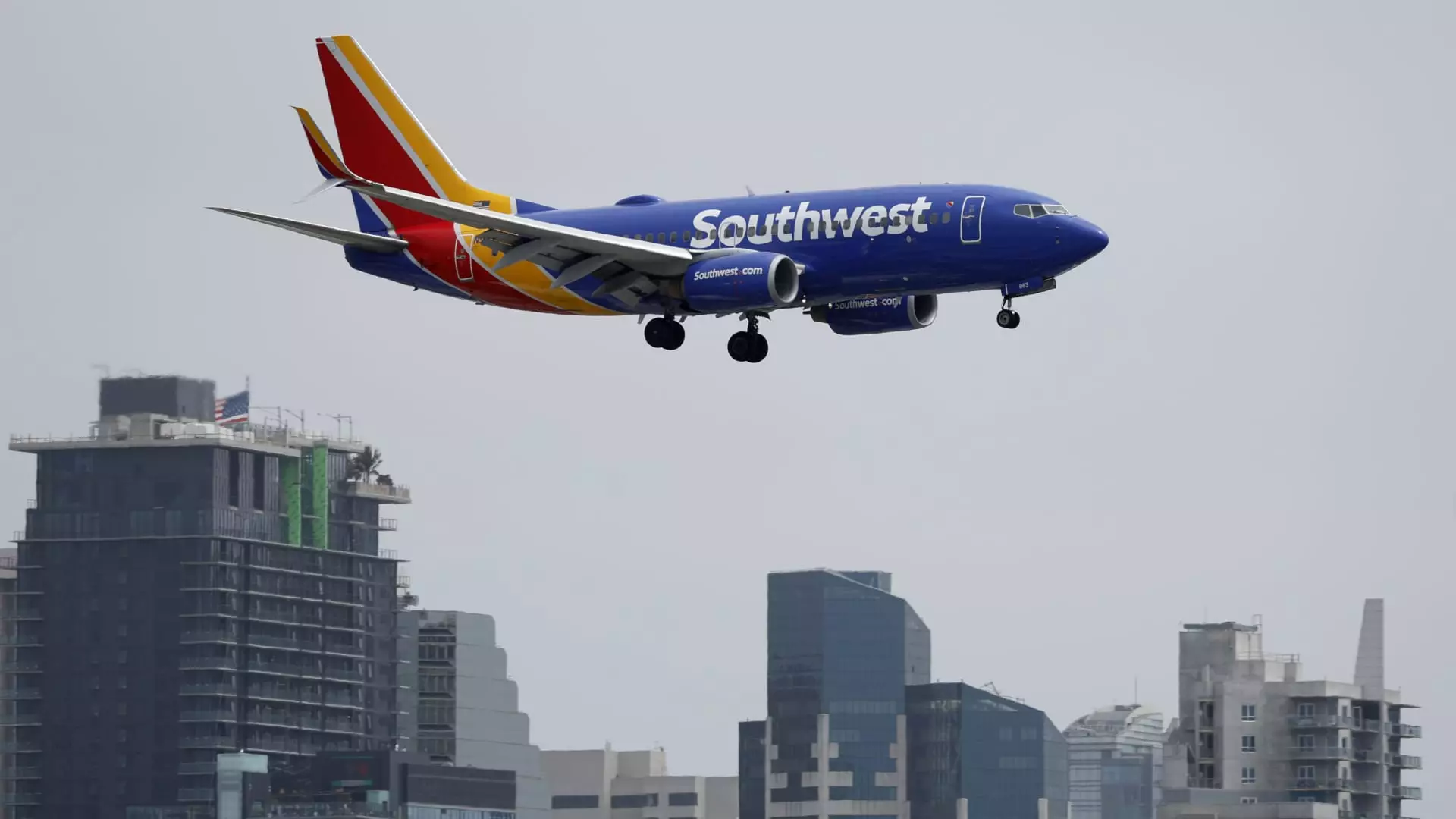In recent weeks, Southwest Airlines has found itself at a crossroads, compelled to make significant operational changes to appease both its workforce and shareholders. The activist investment firm Elliott Investment Management has intensified scrutiny on the airline, advocating for leadership adjustments and enhanced profitability measures. As competition in the airline industry remains fierce, Southwest must act decisively to ensure its business model remains viable and competitive.
This summer, Southwest outlined a comprehensive overhaul of its traditional business model that has persisted for more than five decades. Key among these shifts is the transition from an open seating policy to an assigned seating system. The airline also plans to introduce premium seating options that promise additional legroom at a higher price point. These changes are indicative of a broader strategy aimed at not just retaining current customers but also attracting younger demographics, a market segment that is critical for the airline’s future. COO Andrew Watterson, in a recent communication to staff, emphasized the urgency of these modifications, noting that they are just the beginning of a much-needed transformation.
Watterson did not shy away from acknowledging that difficult decisions lay ahead in the airline’s operational strategy. While he reassured employees that no station closures are imminent, he indicated that the network may undergo significant adjustments to enhance profitability. In a bid to streamline operations, Southwest is contemplating reducing its presence in certain cities while remaining committed to facilitating employee transfers to maintain workforce stability.
To further bolster its revenue streams, the airline has embraced digital platforms like Google Flights and Kayak to increase visibility and accessibility for potential travelers. Coupled with aggressive marketing targeting younger audiences, these initiatives signal a commitment to modernizing the airline’s approach in a rapidly evolving market.
As Southwest prepares to unveil an updated flight schedule running through June 2024, stakeholders eagerly anticipate details surrounding these initiatives. The airline is set to reveal additional insights on operational changes and adjustments during its investor day later this week. Notably, the strategic choices being made at Southwest resonate with broader trends across the aviation sector, as competitors like JetBlue have also opted to cut less profitable routes to maximize aircraft usage on higher-revenue flights.
Moreover, leadership changes at the helm of Southwest have come under the spotlight, especially following the announcement of Gary Kelly stepping down as executive chairman next year. This move has been viewed as both a response to activist pressures and a pivot towards a renewed focus on profitability.
Ultimately, Southwest Airlines is navigating through a period of significant transformation, fueled by external pressures and internal aspirations for growth. The airline’s proactive steps towards redefining its operational strategies and targeting new customer segments are essential to reclaim its competitive edge. As the airline industry continues to grapple with a plethora of challenges, Southwest’s ability to adapt will determine not only its profitability but its standing in a crowded marketplace.


Leave a Reply